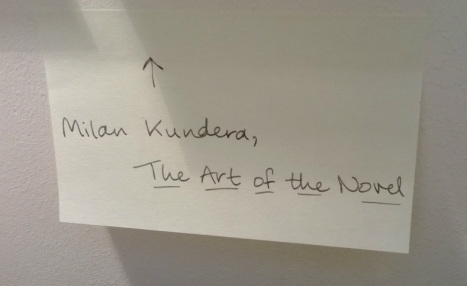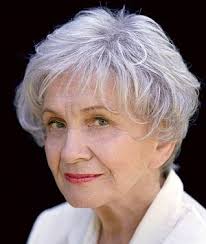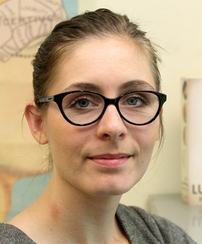Readers won't always agree with Kundera's arguments. To put it simply: as with all books on craft, The Art of the Novel is supposedly a book about novels in general but is of course mostly about what Milan Kundera and a few carefully-selected others are trying to do with the novel. So it works best as one voice in a discussion, not THE voice. If you were to take the self-assurance of Kundera's book seriously, you would end up subscribing to a particular 'great man' sense of literature in which the important novelists are the ones who can be proved to be doing what Kundera says all novelists are doing (novelists who are mostly male, mostly central European). But novelists, like painters, work in a complex and pluralistic setting: they apprentice themselves to one school or movement out of many, they create their own innovations, combine forms, bring new subjects to the art that have not been treated before, cross genres and styles. I think the term 'novel' is often more helpful when it encompasses this plurality, not just one of its branches or traditions.
However, the questions the book is asking are important ones: questions about what people write about in novels, and why, and how they do it, and what it's all for anyway. These aren't questions that are easy to answer, but as a novelist it's pretty important at some point to consider them. And often, Kundera's answers struck a chord and I felt that he had discovered some truth about novel-writing that applies to most of us who see Tolstoy and Dostoevsky and their English counterparts, all those 'compassionate realists', as even distant ancestors. I wanted to remind myself of these thoughts once I'd finished reading the book. So I've put some of Milan Kundera's sentences about the novel on my wall, as a reminder to consider every day what I'm actually doing when I sit down at my desk.
Here is what they say:
[The novel] is the territory where no one possesses the truth, neither Anna nor Karenin, but where everyone has the right to be understood, both Anna and Karenin.
Novel: The great prose form in which an author thoroughly explores, by means of experimental selves (characters), some great themes of existence.
Overfamiliar metaphor: The novelist destroys the house of his life and uses its stones to build the house of his novel.
Beauty in art: the suddenly kindled light of the never-before-said.



 RSS Feed
RSS Feed
